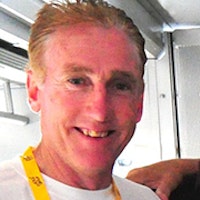Sean Kelly: seven-time Paris-Nice winner, nine-time Monument victor, and a rare beast – a classics specialist with a Grand Tour win under his belt, namely the 1988 Vuelta a Espana. It’s quite some palmares, isn’t it?
To older generations, Kelly epitomised a period of time where Irish cycling was one of the dominating forces of the pro peloton. The likes of he and Stephen Roche headed a golden period for Irish cycling, and Kelly himself emerged from it a legend of the sport.
To newer generations, he’s the man whose poetic tones can be heard through their television sets, providing insightful and revealing input as one of Eurosport’s most well-respected commentators and pundits.
















Share